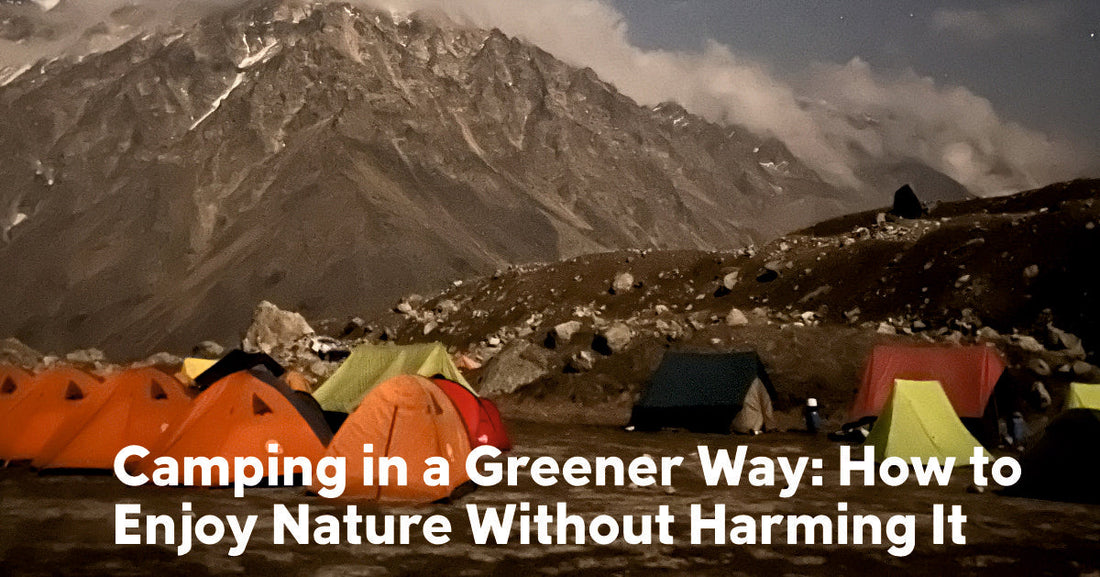Camping in a Greener Way: How to Enjoy Nature Without Harming It

There’s something refreshing about escaping to the great outdoors! Breathing in fresh mountain air, sleeping beneath a blanket of stars, waking to the soothing sounds of nature. Camping gives us a break from busy lives and allows us to reconnect with nature. However, as more people explore the wilderness, our impact on the environment footprint becomes hard to ignore.
Littered camps, trashed trails, and disrupted wildlife indicate that nature requires us to be more conscious. The good news is that it doesn't require a lot of effort to camp more sustainably. Here's how you can make your camping experience greener without sacrificing any of the fun.
1. Leave No Trace - The golden rule of green camping is basic: Leave the campsite just like you found it or even better. Adopt the following simple rules:
• Take out all the trash with you
• Stay on marked trails and campsites
• Compost food waste if possible
Properly disposing of trash and waste is crucial to minimizing your impact on the environment while camping. Always pack out all of your trash and bring it with you when you leave. Never burn or bury trash, as it can harm the environment and wildlife. Human waste should be buried at least 6 inches deep and at least 200 feet away from water sources.
2. Skip Single-Use Items - Refuse paper plates, plastic forks, and disposable water bottles. Instead, bring:
• Reusable utensils and plates
• A refillable water bottle or hydration pack
• Towels and cloth napkins It only requires a little more effort but has a big impact on the world.
3. Use fire responsibly
Campfires are warm, but they have the potential to be damaging if done incorrectly. To be green:
• Cook with a camp stove rather than a fire
• If fires are permitted, utilize fire rings and make fires small
• Never burn wet wood or garbage
• Only gather sticks from the ground and never snap off branches from trees

4. Eat Green on the Trail
Meat and packaged food have a higher environmental footprint and create more waste. Go for a few plant-based dinners for your excursion — like veggie kebabs, bean chili, or wrapped sweet potatoes roasted in foil. They taste great, are simple to prepare outdoors, and kinder to the planet.
5. Use Eco-Friendly Products
Swap chemical -heavy products with biodegradable soaps and natural toiletries. Ensure that all that you take along, particularly what goes down the drain, is environmentally friendly.
Essentials:
· Biodegradable wipes
· Reef-safe sunscreen
6. Travel Smart The journey to the campsite can have considerable impact. So:
• Carpool with friends
• Select locations close by to cut emissions
• Whenever possible, bike or hike to your location
Bonus: You save on fuel and see more along the way.
Eco-friendly camping, is a responsibility and a privilege. It’s a way to enjoy the beauty of the outdoors while ensuring that these landscapes remain unspoiled for future generations. With a few small changes, you can tread lightly on the earth while still making unforgettable memories under the stars. The next time you pack for an adventure, think green and leave nature better than you found it.




